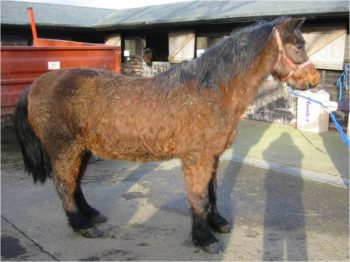23 Aug 2022
Researchers hope a partnership with one of the UK’s biggest care providers will enable the development of a new tool to assess patients’ quality of life.

IMAGE: Carolina09 / Adobe Stock
The RVC has teamed up with one of the UK’s biggest veterinary care providers for a new three-year study examining a common hormone disorder in horses and ponies.
CVS is funding the programme, which aims to develop a new means of assessing the quality of life of animals with pituitary pars intermedia dysfunction (PPID).
Researchers said the project will help to inform vets’ and owners’ treatment decisions, including assessing whether a drug licensed to treat the illness improves patients’ conditions.

Nicola Menzies-Gow, professor of equine medicine at the RVC, who is leading the project, said: “This is an exciting project that will hopefully allow development of a tool that can be used to objectively assess the quality of life of horses and ponies with PPID, and determine which aspects of the disease and its treatment have the greatest impact on this.”
Many horses with PPID – which affects the pituitary gland – go on to develop laminitis, though weight loss, behaviour changes and lethargy may also be signs of the condition.
The project will initially use interviews with vets and owners of animals with PPID, plus a wider questionnaire of owners, to understand which issues associated with the condition affect quality of life most severely and most frequently.
Researchers believe the data will allow them to develop a question-based tool for assessing the condition’s impact, which will then be tested in a study of 140 newly diagnosed horses and ponies.
The group’s progress will be followed over a two-year period to see how they are affected by the condition and whether the use of the pergolide, which is licensed to treat PPID, improves their quality of life.
Imogen Schofield, a veterinary statistician and epidemiologist for CVS, who is also a member of the research team, said: “CVS is delighted to be supporting this important research into the quality of life of horses and ponies with PPID.
“This research will build on our profession’s understanding of the impact of this complex disease and will guide management decision-making, to ensure that affected animals receive the best possible care.”